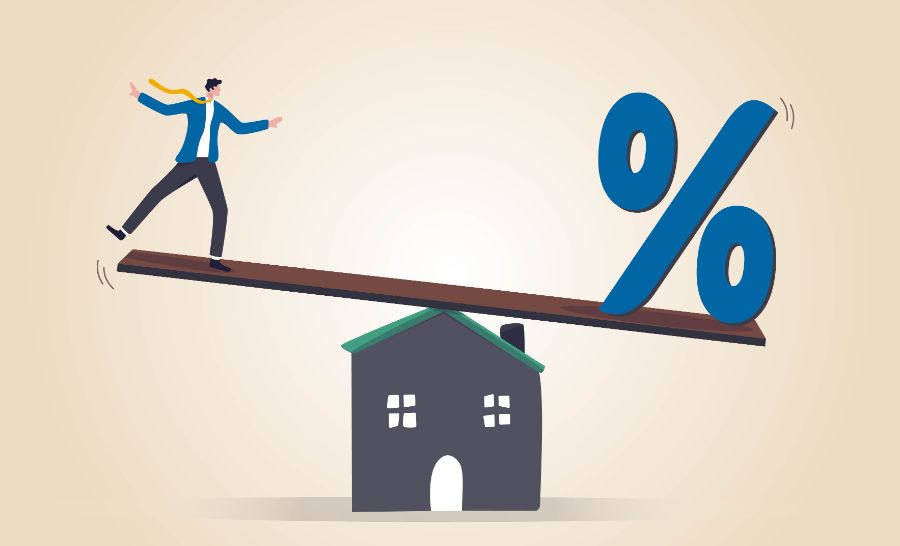Gregory Heym is Chief Economist at Brown Harris Stevens. His weekly series, The Line, covers new developments to the economy, including trends and forecasts. Read on for the latest report and subscribe here to receive The Line in your inbox.
Friday was National Coffee Day, so grab a cup while I give you the latest on mortgage rates and jobless claims, and tell you not to fear a government shutdown. Welcome to the caffeinated edition of The Line.
Let's Start with the Bad News
Maybe you should finish your coffee before going on. I'll wait.
The average 30-year confirming rate rose to 7.31 % this week, it's highest level in almost 23 years. This also marks the third straight week mortgage rates have risen. As I said before, mortgage rates are not coming down significantly until there is more proof the economy is slowing down, so be prepared to wait a while.
Jobless Claims Stay Low
Initial claims for unemployment ticked up to 204,000 last week, but they remain at very low levels. This is a classic good news/bad news scenario. It’s great that with all the talk of layoffs, there has been no noticeable increase in jobless claims. The bad news is that this means the labor market remains strong, which means the prospects for future inflation will go up, bringing long-term mortgage rates with them. That’s what I mean by mostly happier stuff.
Much Ado About Nothing?
As we all know, our federal government is facing the possibility of a shutdown if a funding agreement isn’t reached by the end of the month. Depending on who you listen to, this is either the end of the world or not a big deal. Let’s look at some facts courtesy of Richard Vague:
- There have only been three budget-related shutdowns of more than a week in U.S. history.
- They were 1995-1996 (21 days), 2013 (16 days), and 2018-2019 (35 days).
- None of them caused any series damage to the economy, in fact the 2018-2019 shutdown only subtracted 0.01% from GDP.
Don’t get me wrong, I think it’s terrible that shutdowns happen. We should expect more from our representatives. That said, we also shouldn’t use them to scare people when history tells us they always get resolved before they cause too much damage. The only thing I’m really worried about is how frequently they happen. Think about it, this was never a concern before 1995 and now it’s become an annual thing.
As we all know, our federal government is facing the possibility of a shutdown if a funding agreement isn’t reached by the end of the month. Depending on who you listen to, this is either the end of the world or not a big deal. Let’s look at some facts courtesy of Richard Vague:
- There have only been three budget-related shutdowns of more than a week in U.S. history.
- They were 1995-1996 (21 days), 2013 (16 days), and 2018-2019 (35 days).
- None of them caused any serious damage to the economy, in fact the 2018-2019 shutdown only subtracted 0.01% from GDP.
Don’t get me wrong, I think it’s terrible that shutdowns happen. We should expect more from our representatives. That said, we also shouldn’t use them to scare people when history tells us they always get resolved before they cause too much damage. The only thing I’m really worried about is how frequently they happen. Think about it, this was never a concern before 1995 and now it’s become an annual thing.
Funny story about the 1995 shutdown—it’s the reason I’m in real estate. I may have shared this before, but in 1995, I was an economist with the Bureau of Labor Statistics. Since there had never been a long shutdown of the government before, I was very worried about losing my job. A former coworker of mine was the chief economist at REBNY and called to ask me if I wanted his job, as he was quitting to go to grad school out west. And the rest, as they say, is history. Thanks for the call, Lawrence!
Just think, if it wasn’t for him, you wouldn’t be reading this column right now. Hopefully you’re happy I made the move.
